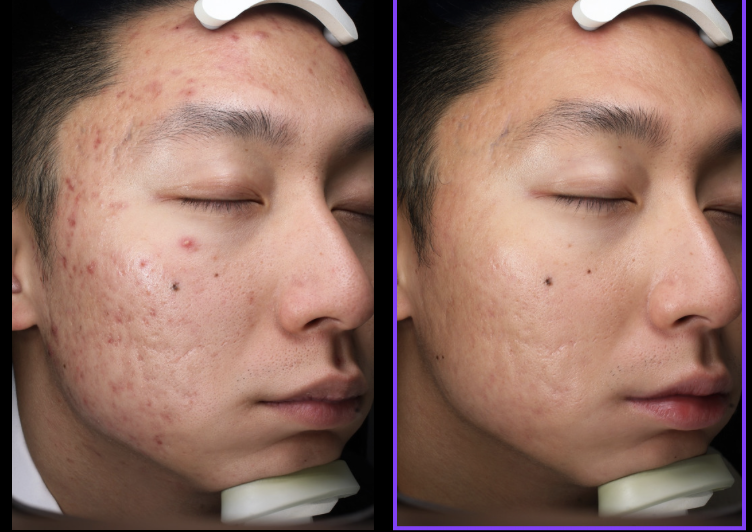Melbourne's Top Chromaderm Dermatologist: Cutting-edge Skin Treatment at Its Ideal
Melbourne's Top Chromaderm Dermatologist: Cutting-edge Skin Treatment at Its Ideal
Blog Article
Exploring the Role of Dermatologists in Diagnosing and Treating Diverse Skin Disease With Precision
From usual concerns like acne and eczema to extra complex problems such as melanoma or unusual hereditary skin conditions, skin doctors are at the center of detecting and dealing with these conditions with accuracy. Past the surface of skin conditions exist interconnected aspects that affect medical diagnosis and treatment end results.
Significance of Very Early Detection
Early discovery of skin conditions plays a vital duty in the effective treatment and administration by skin doctors. Skin doctors depend on their know-how to recognize refined adjustments in the skin that may show underlying problems, such as skin cancer cells, dermatitis, dermatitis, or psoriasis.
Additionally, early detection makes it possible for skin doctors to tailor treatment strategies to the particular needs of each client. Discovering skin cancer in its very early stages substantially improves the prognosis and raises the chance of effective treatment outcomes. By stepping in early, dermatologists can also assist relieve signs and symptoms, prevent intensifying of the condition, and boost the general quality of life for their people. Highlighting the importance of very early detection emphasizes the essential role that dermatologists play in advertising skin health and wellness.
Advanced Diagnostic Methods
Utilizing modern technology and specialized knowledge, dermatologists employ advanced diagnostic strategies to accurately recognize and analyze different skin conditions. By amplifying the skin, dermoscopy aids in the very early discovery of cancer malignancy, basic cell carcinoma, and various other skin cancers.
Additionally, molecular testing has changed the diagnosis and therapy of skin diseases by allowing skin doctors to assess hereditary anomalies linked with conditions such as melanoma and hereditary dermatoses. With methods like polymerase domino effect (PCR) and next-generation sequencing (NGS), skin doctors can provide customized therapy plans based upon a person's details hereditary account. These advanced analysis devices enhance the precision and effectiveness of skin-related treatment, eventually leading to much better end results for clients.

Tailored Treatment Strategies
With a detailed understanding of skin disease achieved through innovative analysis techniques, skin doctors tailor treatment approaches to address private patient requires successfully. This individualized method is vital in making sure ideal end results for individuals with varied skin problem. By considering aspects such as skin kind, clinical history, way of living behaviors, and treatment preferences, skin specialists can create therapy strategies that are specifically tailored to every client.
Tailored treatment techniques may entail a mix of treatments such as topical medications, oral medicines, minimally invasive procedures, or lifestyle modifications. For instance, patients with acne might gain from a routine that consists of topical retinoids, oral antibiotics, and in-office procedures like chemical peels or laser therapy. On the various other hand, people with eczema might call for a treatment strategy focused on gentle skincare routines, moisturizers, topical corticosteroids, and determining and avoiding triggers that exacerbate their condition.

Managing Persistent Skin Conditions
Skin specialists play a crucial function in developing long-lasting management approaches for chronic skin disease, ensuring effective care and boosted top quality of life for patients - Chromadermatology. Taking care of chronic skin disease needs an extensive strategy that exceeds simply treating signs and symptoms. Skin doctors are trained to not just detect these conditions properly but also to develop personalized therapy strategies that attend to the underlying causes and elements adding to the skin condition's perseverance
In handling chronic skin problem, skin specialists often utilize a mix of treatment modalities helpful site tailored per patient's particular needs. This may include topical drugs, oral drugs, way of life alterations, and procedural interventions such as laser treatment or phototherapy. Regular follow-up appointments are crucial to keep an eye on the problem's development, change therapy as required, and offer continuous support and education to individuals.
In addition, skin doctors play an essential role in empowering individuals to take an active duty in handling their skin this link disease. By educating individuals regarding their condition, therapy options, and precautionary actions, skin specialists help people make notified decisions and grow healthy and balanced skin habits that add to long-lasting skin wellness and total well-being.
Collaborative Treatment Methods
In the alternative management of skin conditions, collaborative treatment approaches including numerous medical care professionals are crucial for enhancing patient end results. Skin doctors often operate in multidisciplinary groups to provide extensive care that attends to the varied requirements of clients with skin disease. By collaborating with medical care doctors, specialists, cosmetic surgeons, and various other experts, skin specialists can ensure that patients get integrated and coordinated care customized to their details problem.
Joint care methods likewise extend to client education and support. Dermatologists can function carefully with pharmacologists, psychologists, and registered nurses to enlighten clients about their skin disease, treatment alternatives, and precautionary procedures. This interdisciplinary approach equips patients to proactively take part in their care and make notified decisions concerning their health and wellness.
Moreover, collaborative care permits an extra holistic evaluation of patients, taking into account not just the physical symptoms of their skin condition yet also the emotional and social effect it might have. Discover More By considering the more comprehensive implications of skin disease, medical care professionals can develop extra individualized therapy plans that resolve the distinct demands of each person. Ultimately, joint treatment techniques play a crucial duty in delivering top quality, patient-centered look after individuals with diverse skin problems.
Final Thought
In conclusion, dermatologists play an important role in identifying and treating a large variety of skin conditions with precision. By managing chronic skin conditions and implementing collective care methods, skin doctors make certain extensive and reliable care for their clients.
Skin doctors depend on their competence to identify refined changes in the skin that may suggest underlying issues, such as skin cancer cells, dermatitis, dermatitis, or psoriasis. By magnifying the skin, dermoscopy help in the very early discovery of melanoma, basal cell carcinoma, and other skin cancers.With a thorough understanding of skin problems achieved via innovative diagnostic methods, skin specialists tailor treatment methods to attend to specific patient requires properly. Skin doctors are trained to not only detect these problems properly yet likewise to produce customized therapy strategies that address the underlying aspects and causes adding to the skin problem's perseverance.
In taking care of chronic skin conditions, skin specialists usually employ a mix of treatment techniques tailored to each patient's details needs.
Report this page